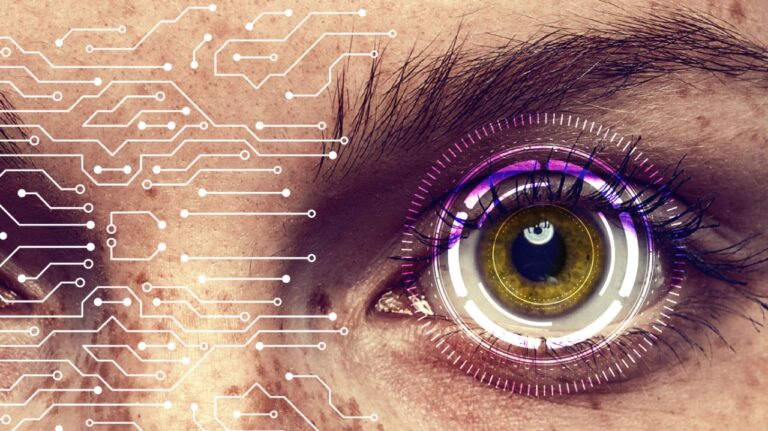Biohacking and transhumanism have the potential to revolutionize human capabilities and redefine the boundaries of what it means to be human. They offer the possibility of enhancing cognitive abilities, extending lifespan, and even merging human bodies with technology, all in an effort to push the limits of human potential.
With advancements in genetic engineering, artificial intelligence, and wearable technologies, the exploration of these fields opens up a world of possibilities for human evolution and transformation. As we delve deeper into the potential of biohacking and transhumanism, it becomes increasingly important to consider the ethical implications, societal impact, and potential risks associated with these emerging technologies.
The Rise Of Biohacking
Biohacking and transhumanism have gained significant popularity in recent years. The rise of biohacking has sparked curiosity among individuals seeking to optimize their bodies and minds. But what exactly is biohacking? It refers to the use of technology, science, and lifestyle changes to improve and enhance human biology.
The history and evolution of biohacking can be traced back to self-experimentation by individuals striving for self-improvement. Over time, key players and influencers have emerged in the biohacking community, sharing knowledge and pushing boundaries. These individuals serve as pioneers, exploring the potential of biohacking and sparking conversations about the future of human enhancement.
As more people take interest in this field, the possibilities for biohacking and transhumanism continue to expand, offering new ways for individuals to push the boundaries of what it means to be human.
Transhumanism And Its Implications
Transhumanism is a philosophy that seeks to enhance human capabilities through technology and biology. This movement raises important ethical questions about the boundaries of human existence. Furthermore, transhumanist technologies offer both potential benefits and risks. On one hand, they could lead to significant advancements in areas such as medicine, longevity, and cognitive enhancements.
On the other hand, there are concerns about inequality, unintended consequences, and the possible loss of human essence. The debate around transhumanism brings up questions about what it means to be human and whether we should push the boundaries of our nature.
As we continue to explore the potential of biohacking and transhumanism, we must carefully consider the implications and strike a balance between progress and preserving our humanity.
Emerging Technologies In Biohacking And Transhumanism
Biohacking and transhumanism are emerging technologies with vast potential. Genetic engineering allows for diverse applications. Cognitive enhancement through biohacking is a revolutionary concept. Cyborg technologies contribute to augmenting human abilities. These advancements are reshaping how we perceive ourselves and the world around us.
As we push the boundaries of science and technology, exciting possibilities arise. The fusion of biology and technology provides avenues for growth and exploration. Our understanding of the human mind and body expands as we delve deeper into biohacking and transhumanism.
Though still in its infancy, these fields hold promise for the future, offering opportunities to enhance our capabilities and redefine what it means to be human.
Biohacking For Health And Longevity
Biohacking and transhumanism hold immense potential for improving health, longevity, and cognitive function through various methods. Nootropics, for instance, have gained popularity in the field of biohacking for their ability to enhance cognitive performance. From memory improvement to increased focus and productivity, these cognitive enhancers have become essential tools for those seeking mental clarity and performance optimization.
Biohacking also plays a crucial role in promoting longevity and anti-aging. By implementing lifestyle changes, such as optimizing nutrition, sleep, exercise, and stress management, individuals can manipulate their biology to slow down the aging process and promote overall wellness. Furthermore, biohackers utilize advanced technologies and interventions like genetic engineering, stem cell therapy, and hormone optimization to enhance their healthspan.
Exploring the potential of biohacking and transhumanism allows us to uncover innovative approaches to improve our well-being and push the boundaries of human capabilities. By tapping into the power of scientific advancements and personalized interventions, we can optimize our health and strive for a longer, healthier life.
Beyond The Human: Exploring Posthumanism
Posthumanism is a concept that explores the possibilities beyond human capabilities, delving into realms like biohacking and transhumanism. These ideologies venture into the future of ai and the integration of humans with technology. However, ethical considerations arise when delving into this arena.
It is crucial to understand the implications and consequences of crossing the boundaries between man and machine. Posthumanism challenges traditional notions of what it means to be human and pushes the boundaries of human potential. With the potential to enhance our abilities and transform our existence, it is essential to explore the ethical aspects of these ideologies.
The future of posthumanism holds great promise, but it is crucial to approach it with careful consideration and an understanding of the potential implications. In conclusion, posthumanism offers a glimpse into a future that goes beyond the human experience, but it comes with ethical dilemmas that must be addressed.
Biohacking Communities And Resources
Biohacking communities and resources play a vital role in the exploration of potential within transhumanism. Online forums and communities provide a platform for biohackers to connect, share knowledge, and support each other. Engaging in conferences and events allows biohackers to delve deeper into the subject, gaining insights from experts and networking with like-minded individuals.
Moreover, these events provide opportunities to showcase innovations and advancements in biohacking. Resources for biohacking education and experimentation are also abundant, enabling individuals to learn new techniques, try different approaches, and push the boundaries of human adaptability. As the field of biohacking continues to evolve, the availability of online communities, events, and resources ensures that its potential is fully explored, pushing the boundaries of what it means to be human.
Conclusion
The potential of biohacking and transhumanism is immense, offering us a glimpse into an exciting future where humans go beyond their current limitations. With advancements in technology, we are on the cusp of enhancing our bodies and minds like never before.
From genetic engineering to brain-computer interfaces, the possibilities seem endless. This blog post has delved into the various aspects of biohacking and transhumanism, exploring the ethical concerns, potential benefits, and the role of technology in shaping our future. As society becomes more receptive to these ideas, we must navigate the ethical dilemmas and ensure that these advancements are used for the betterment of humanity.
While we cannot predict the exact outcomes, one thing is certain – biohacking and transhumanism have the capacity to revolutionize not only the way we live but also our understanding of what it means to be human. Embracing and exploring these possibilities may pave the way for a future that is truly extraordinary.


















+ There are no comments
Add yours